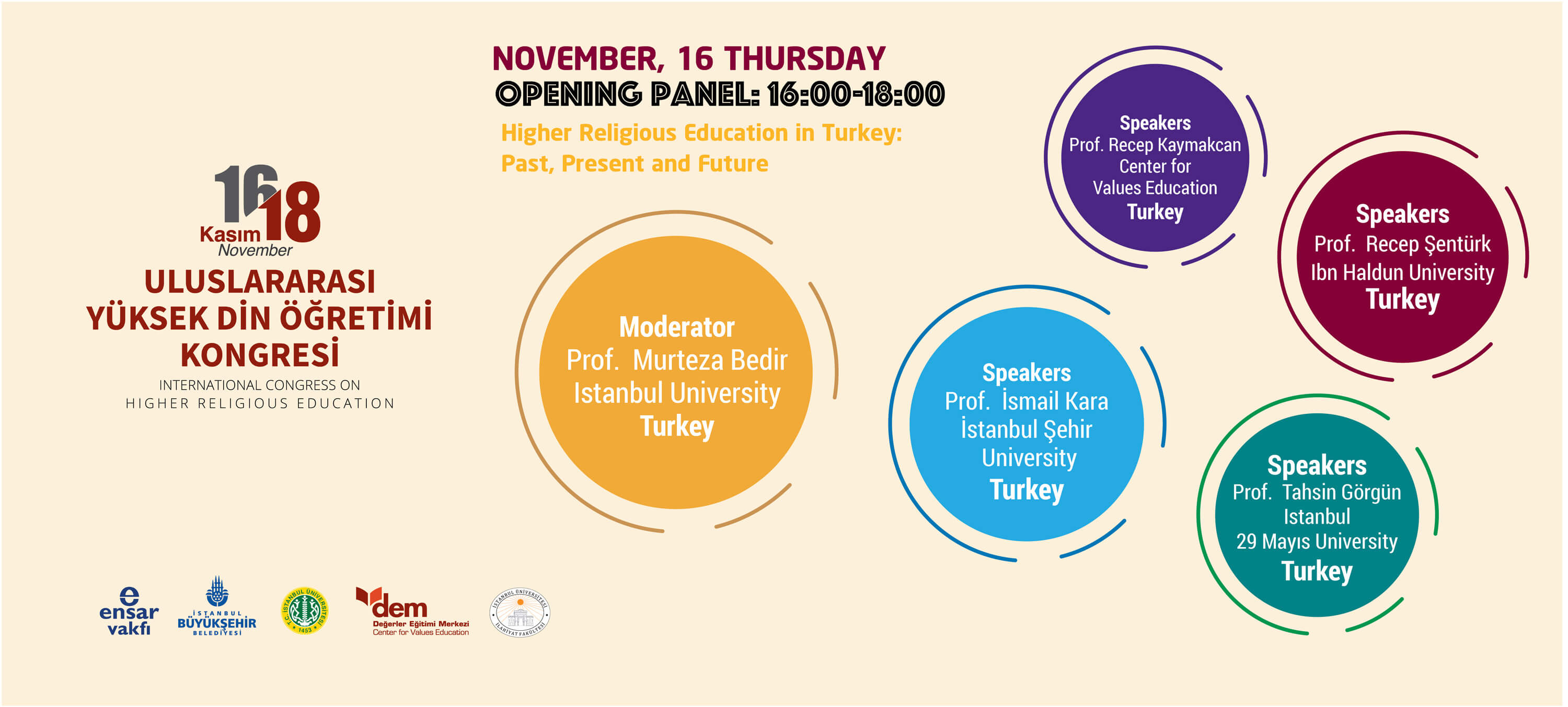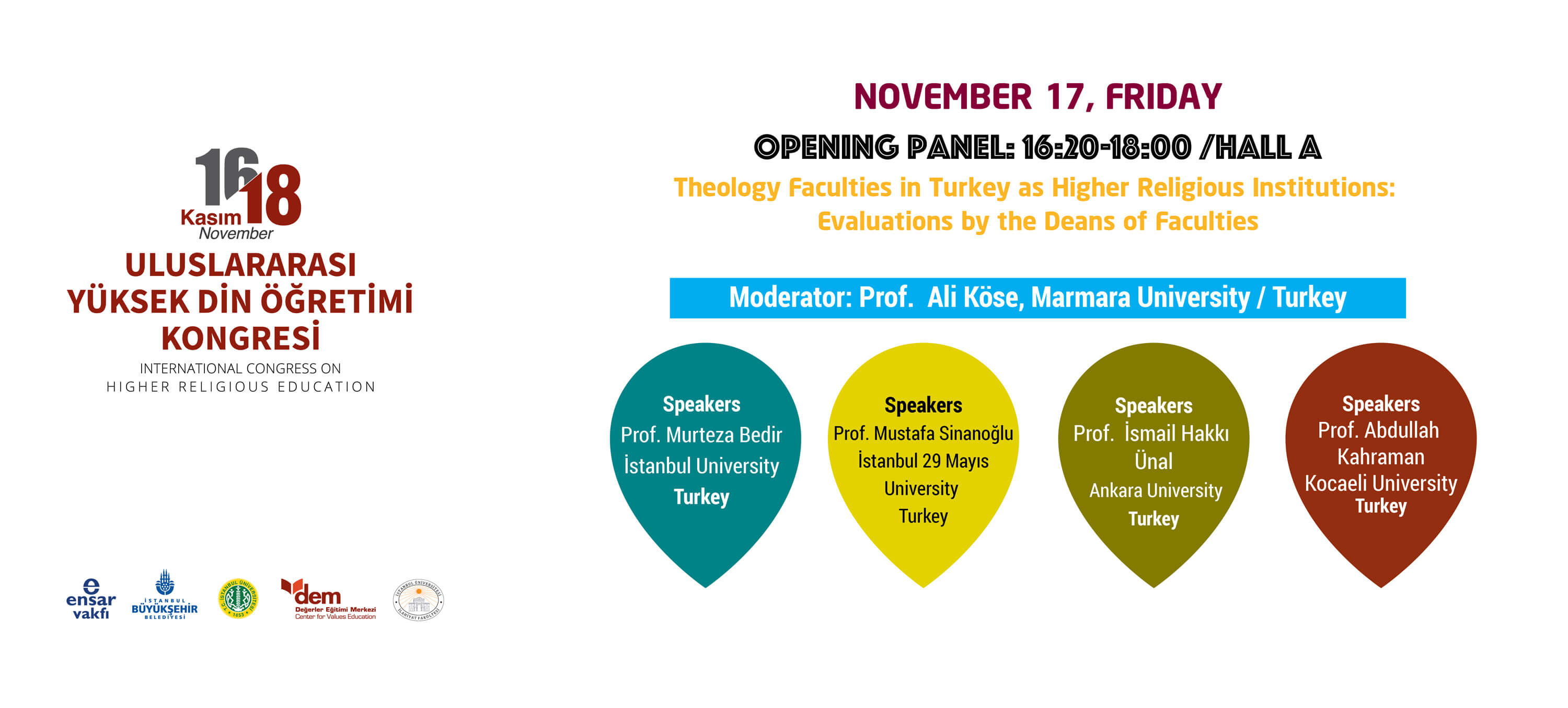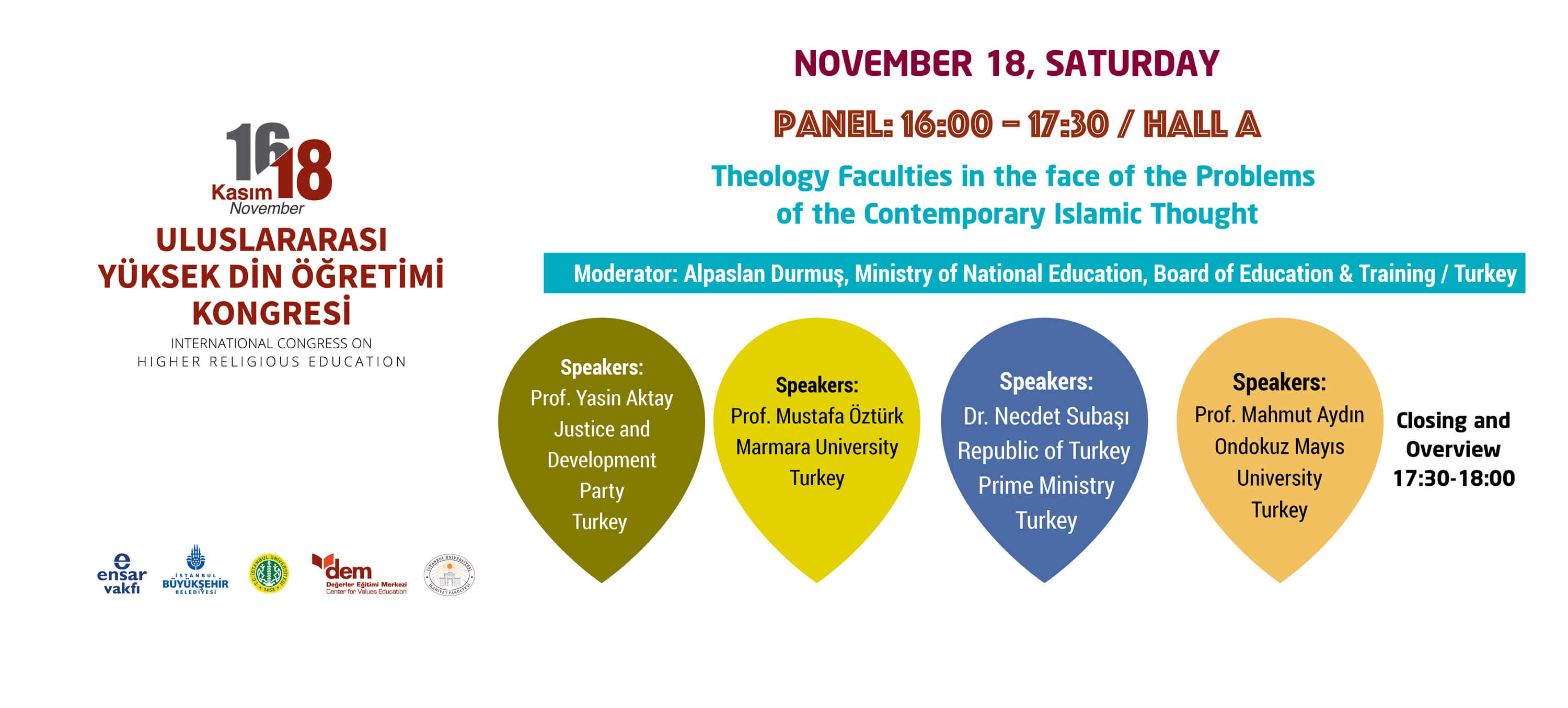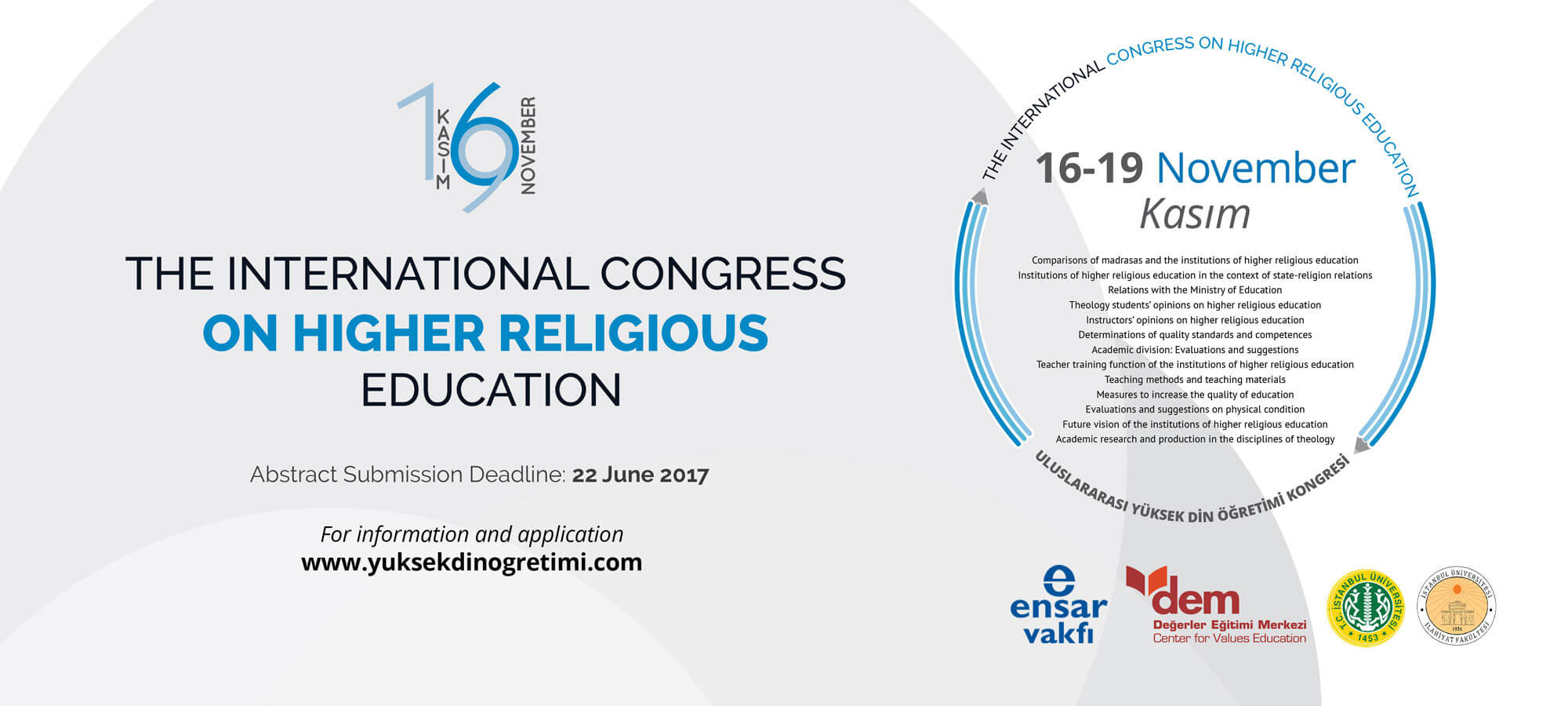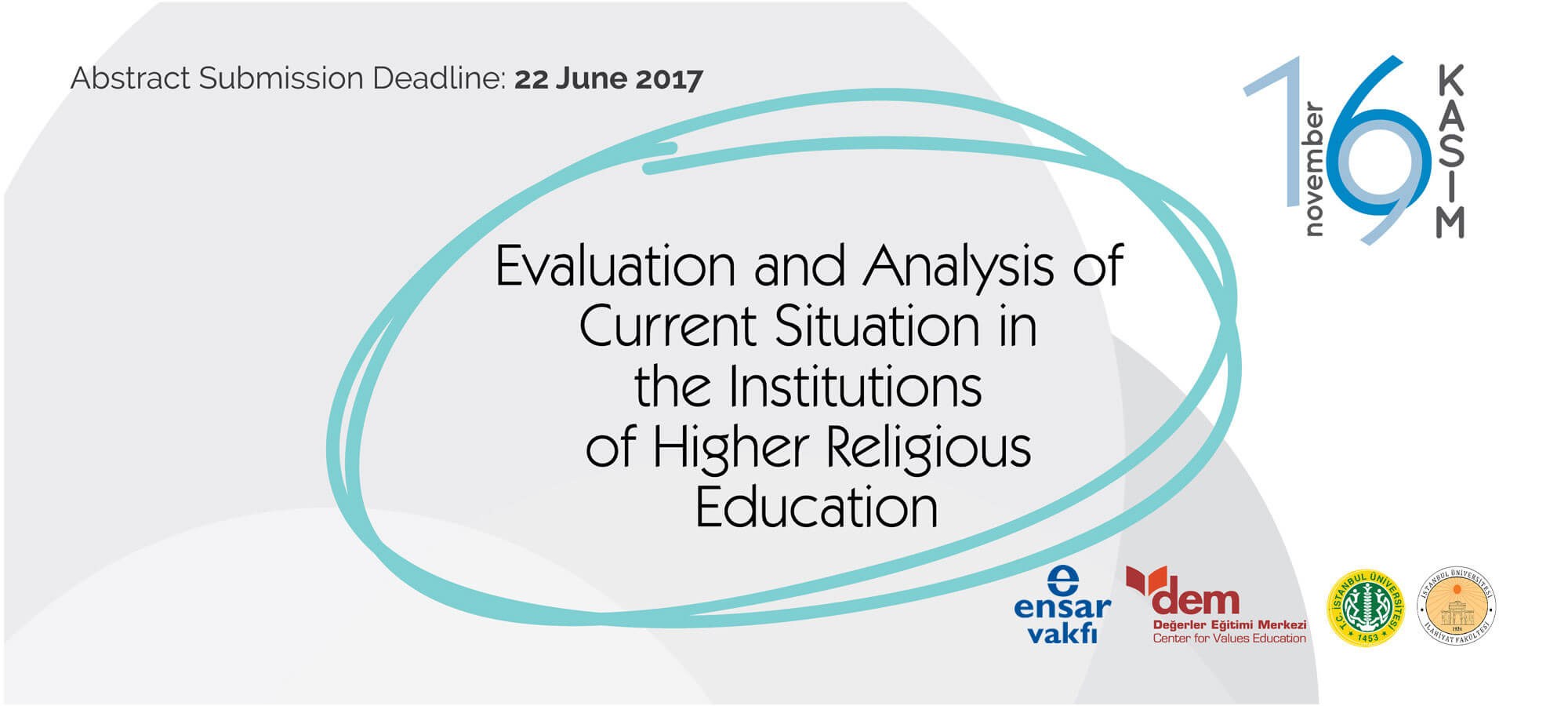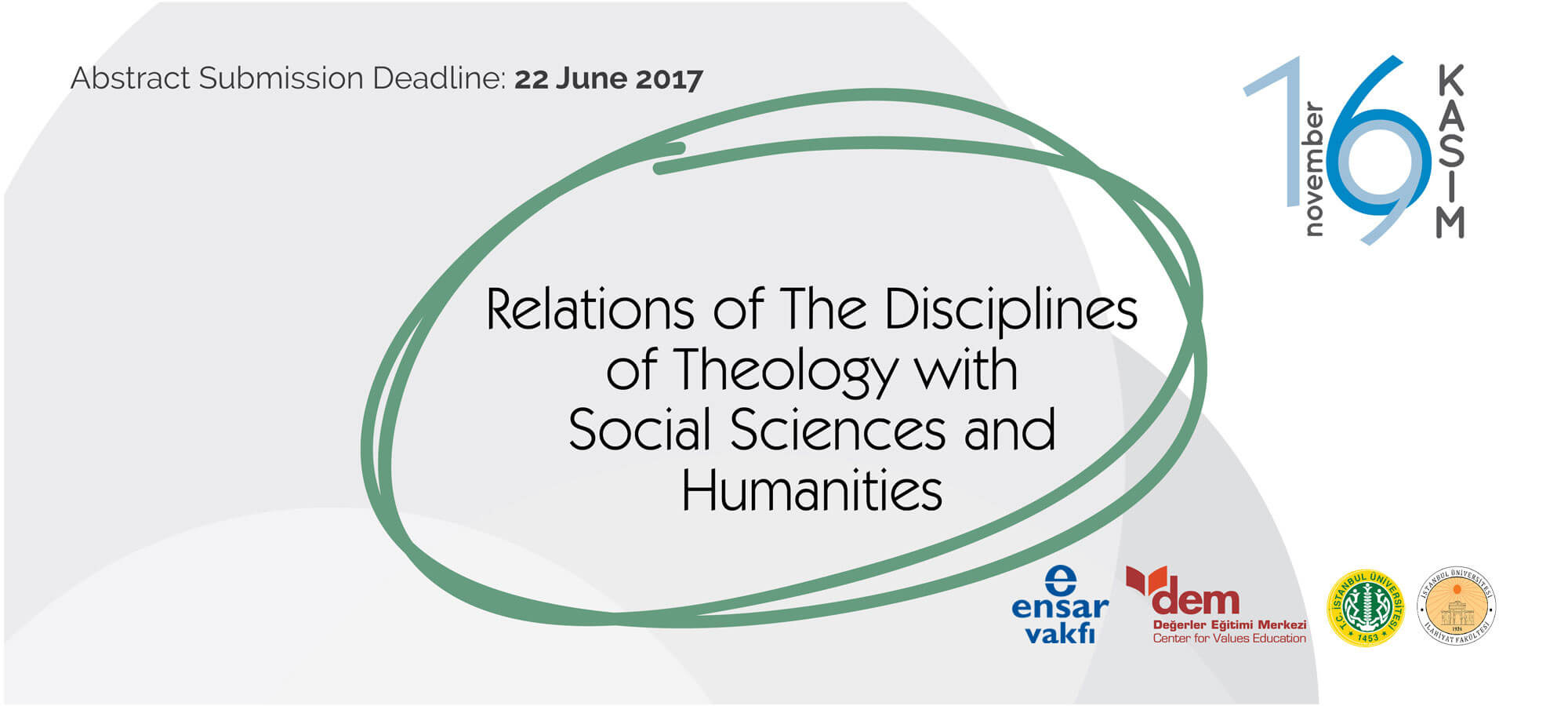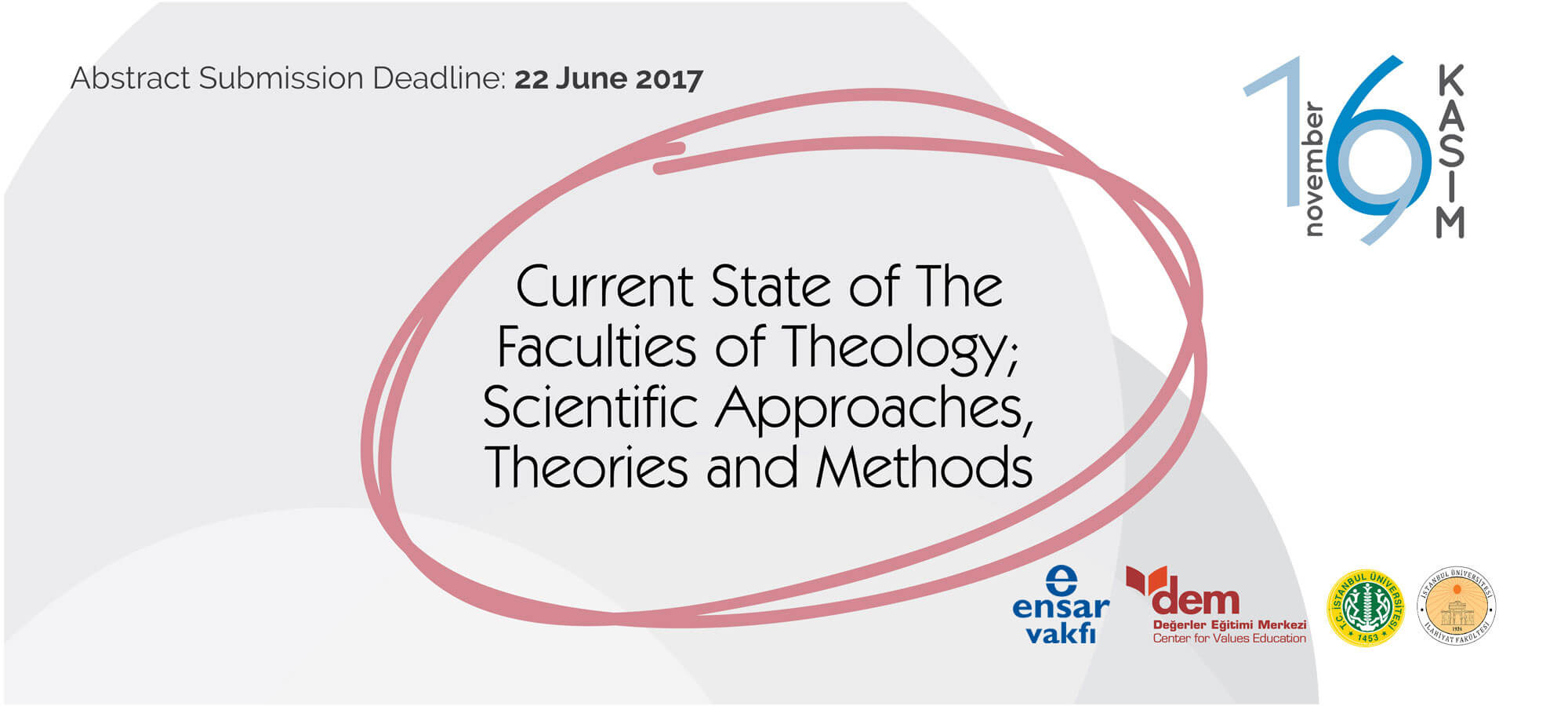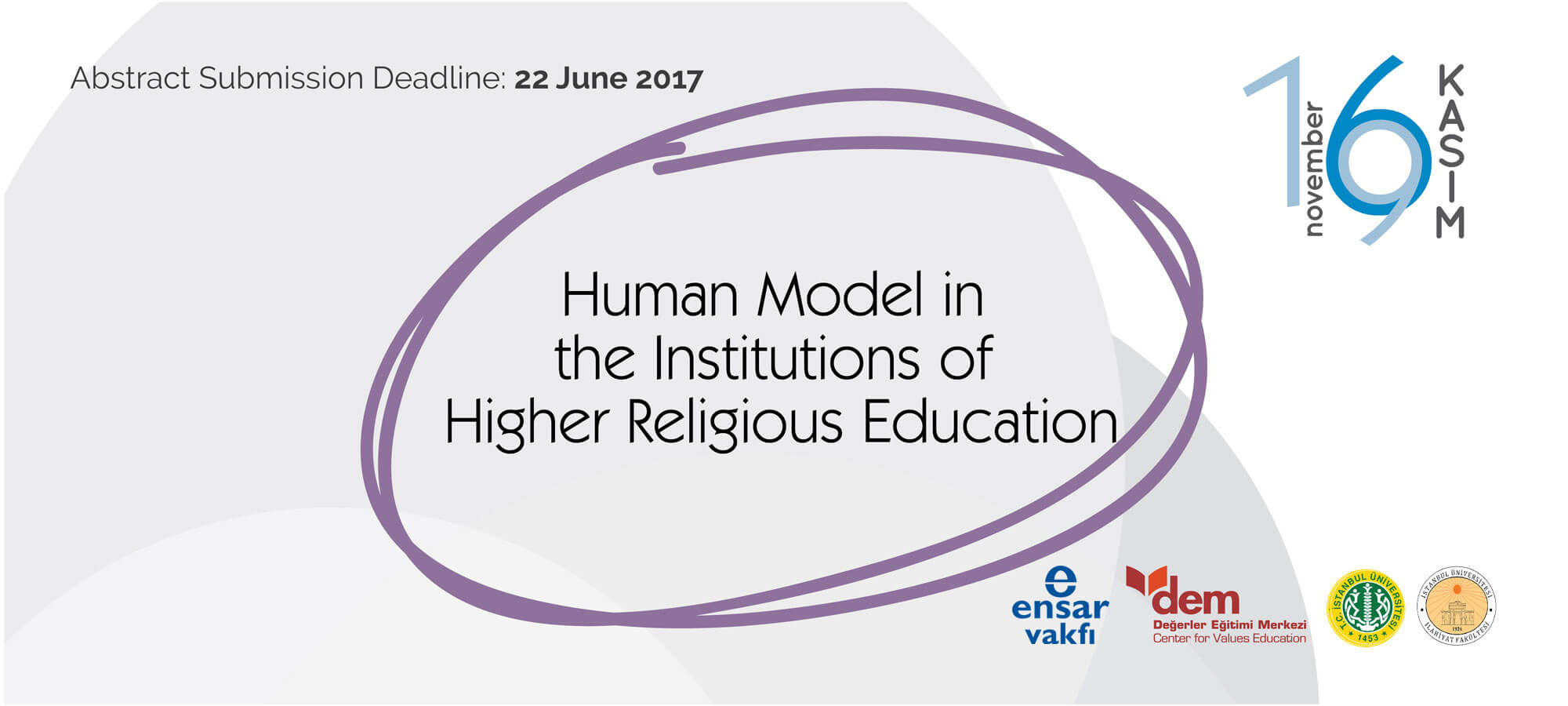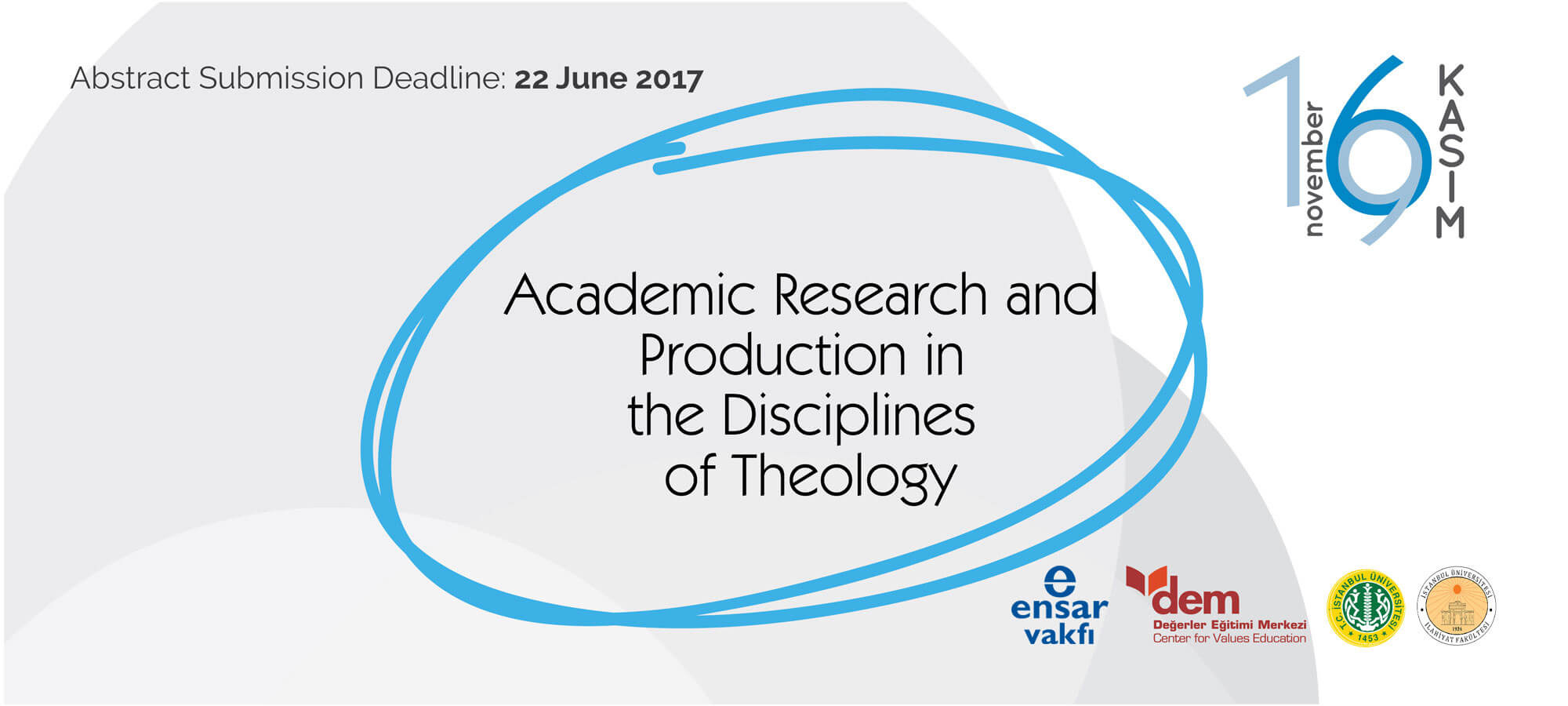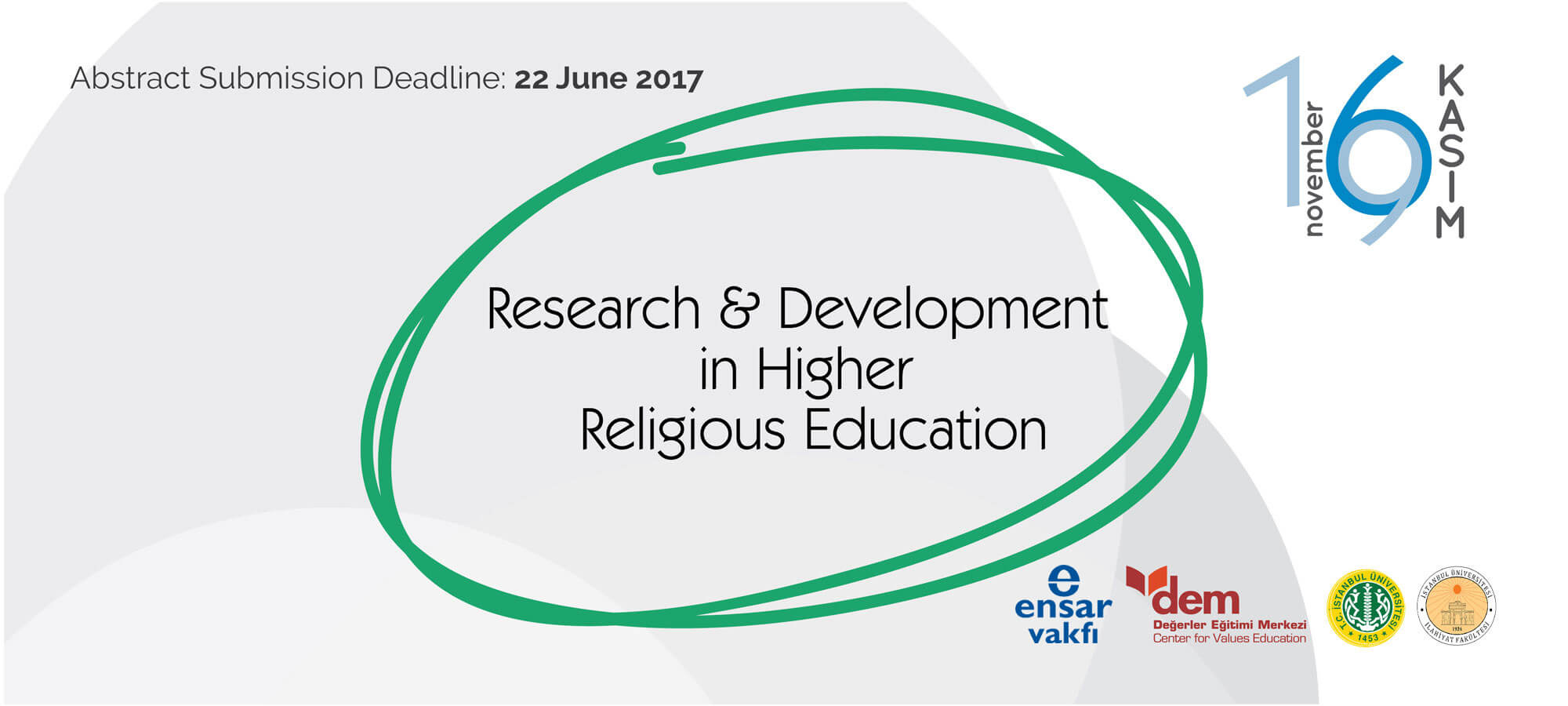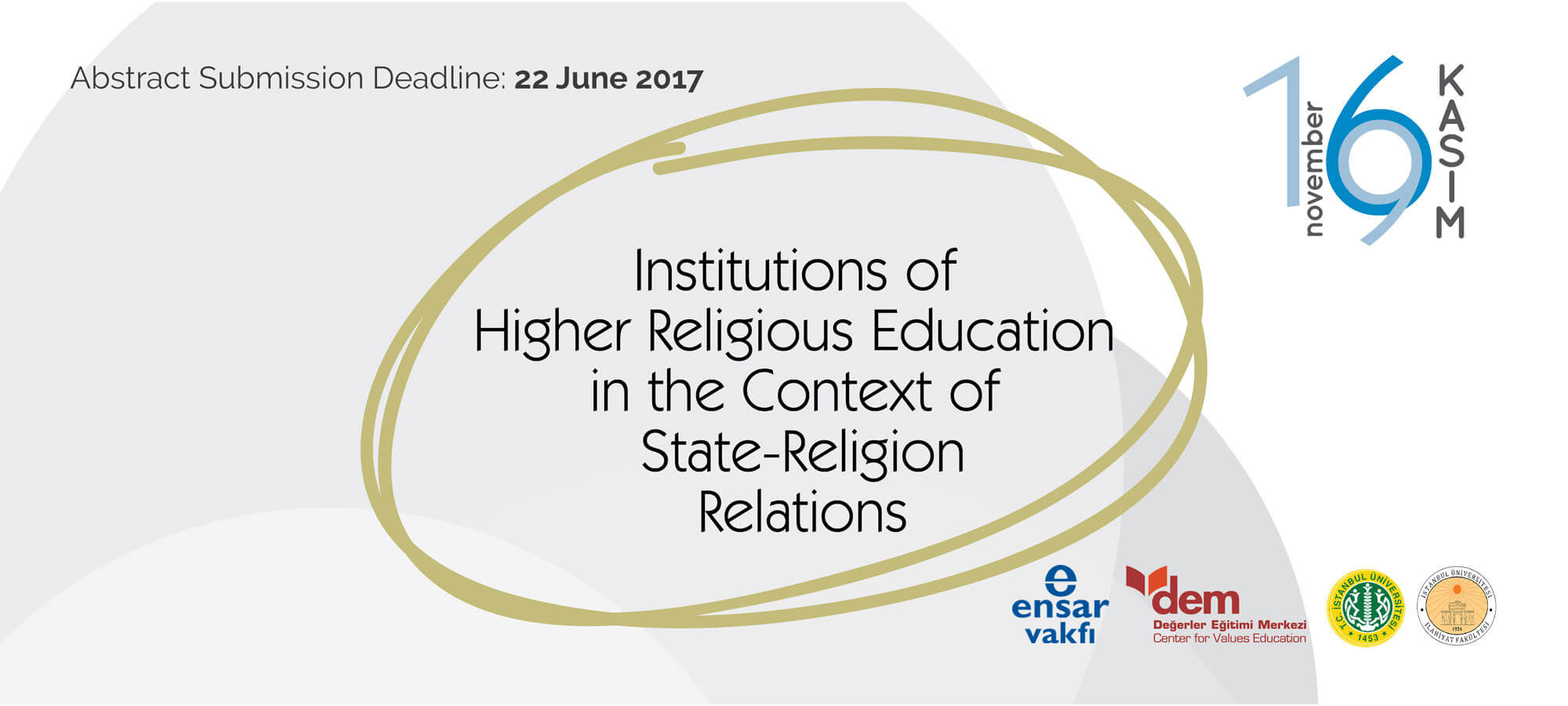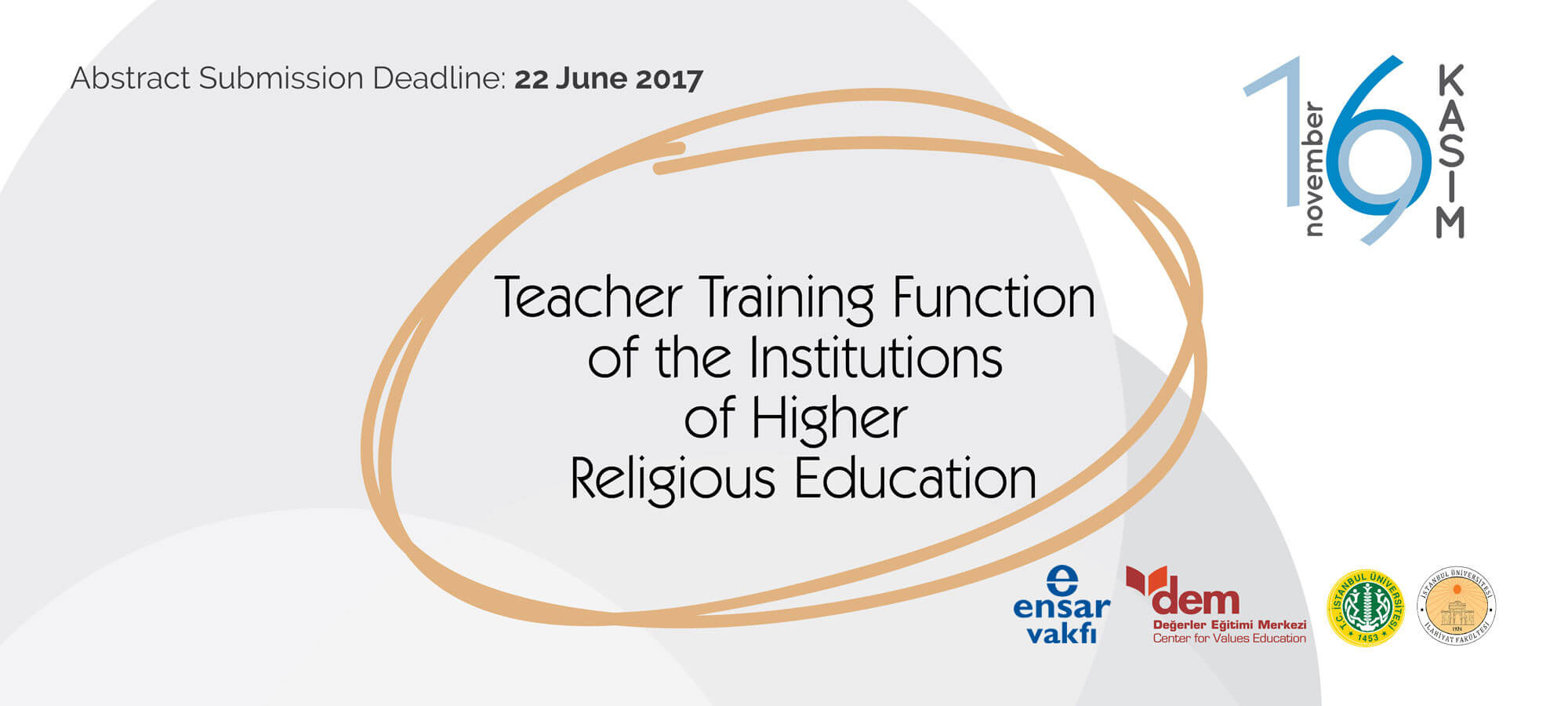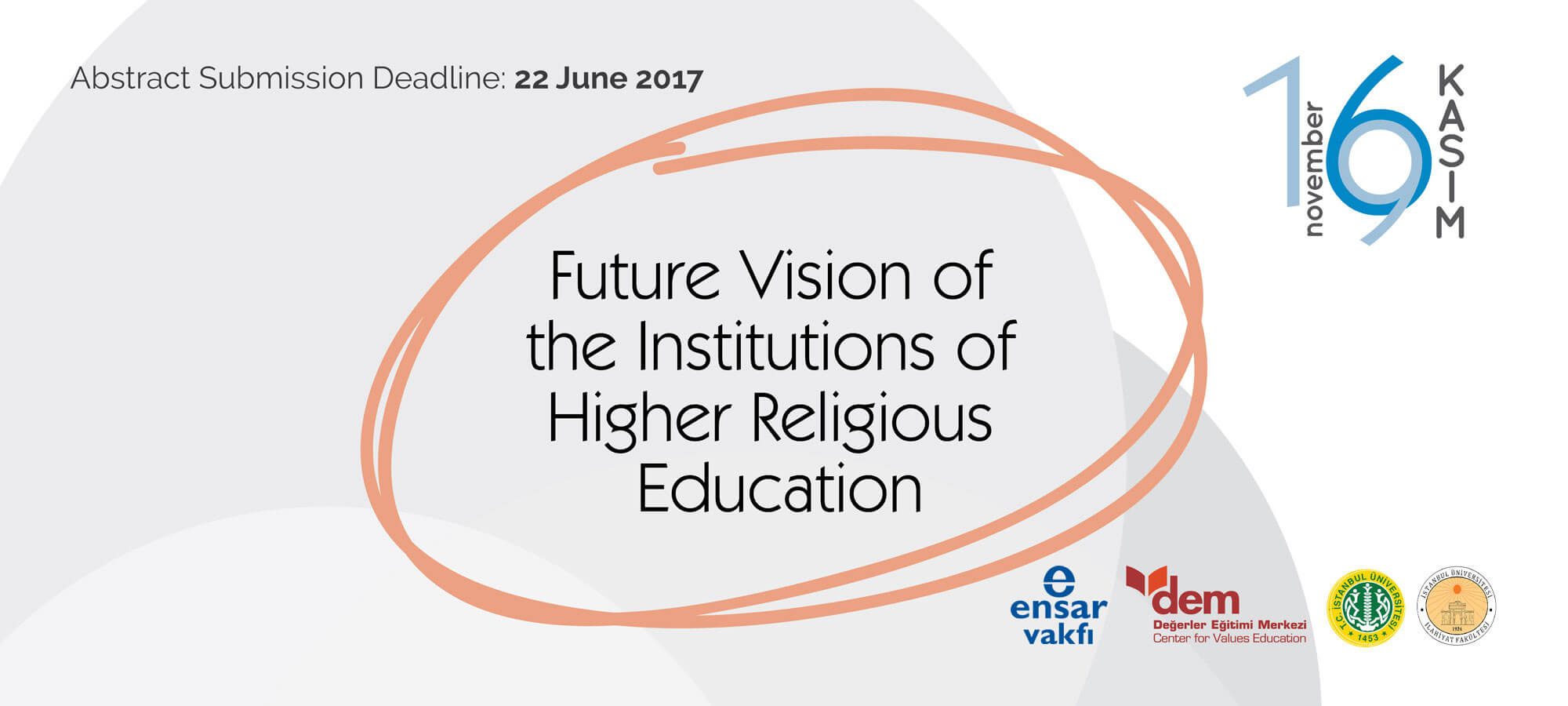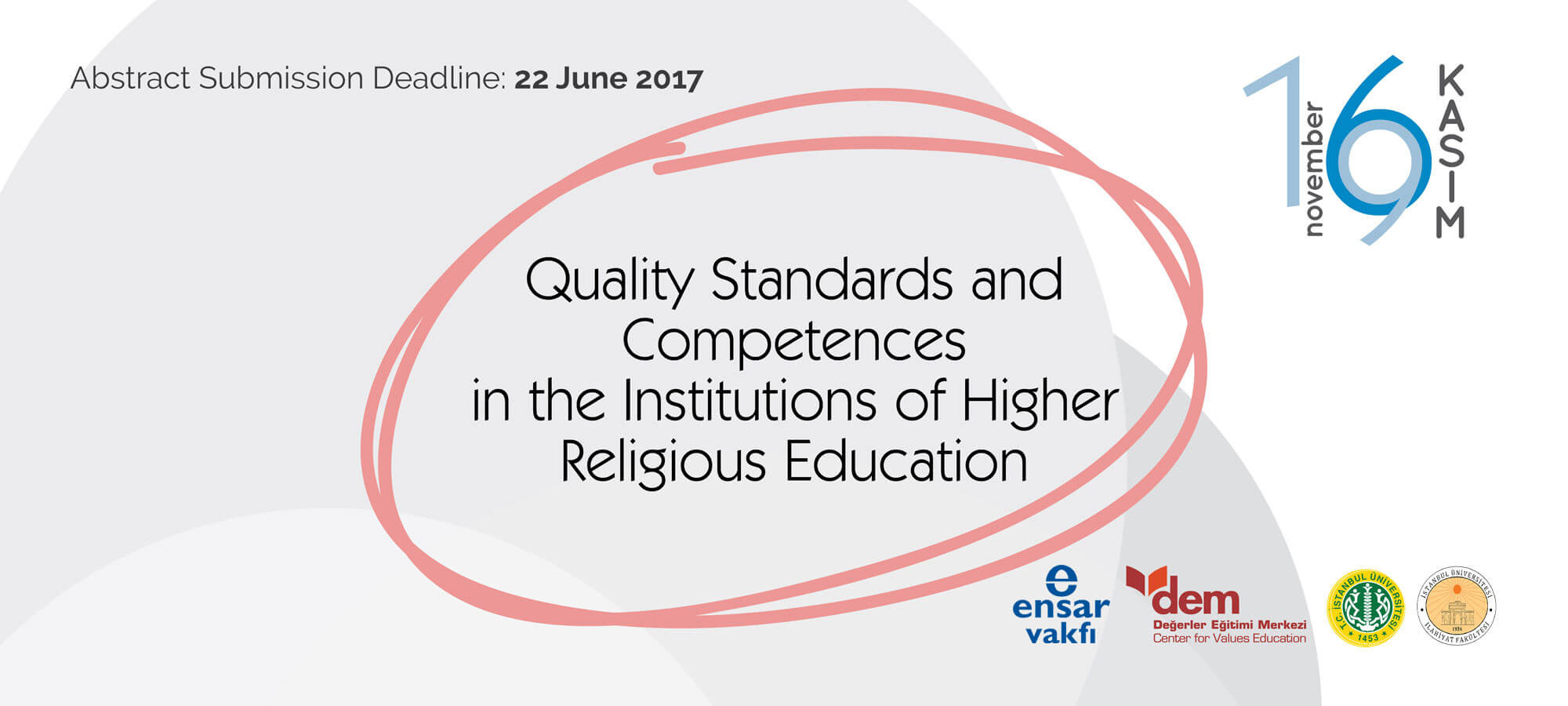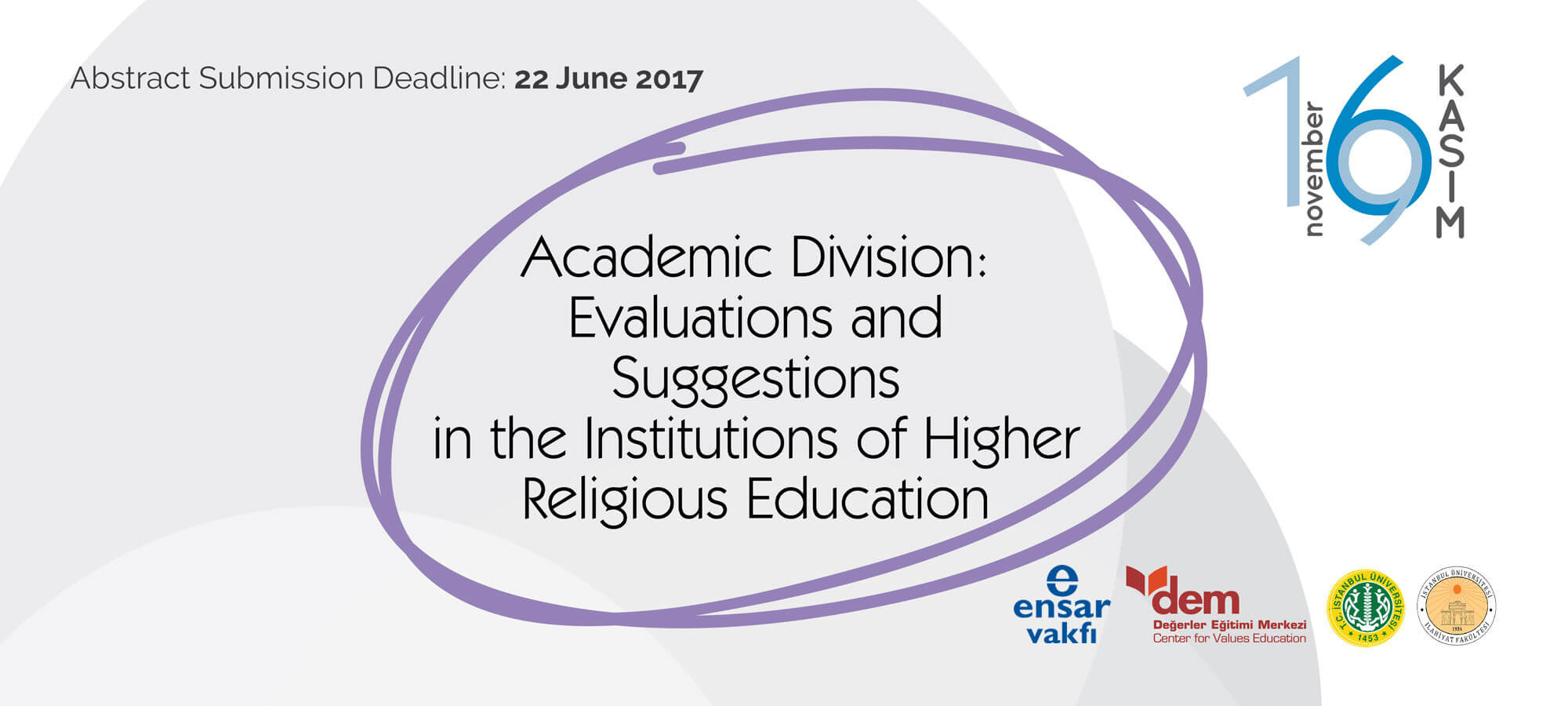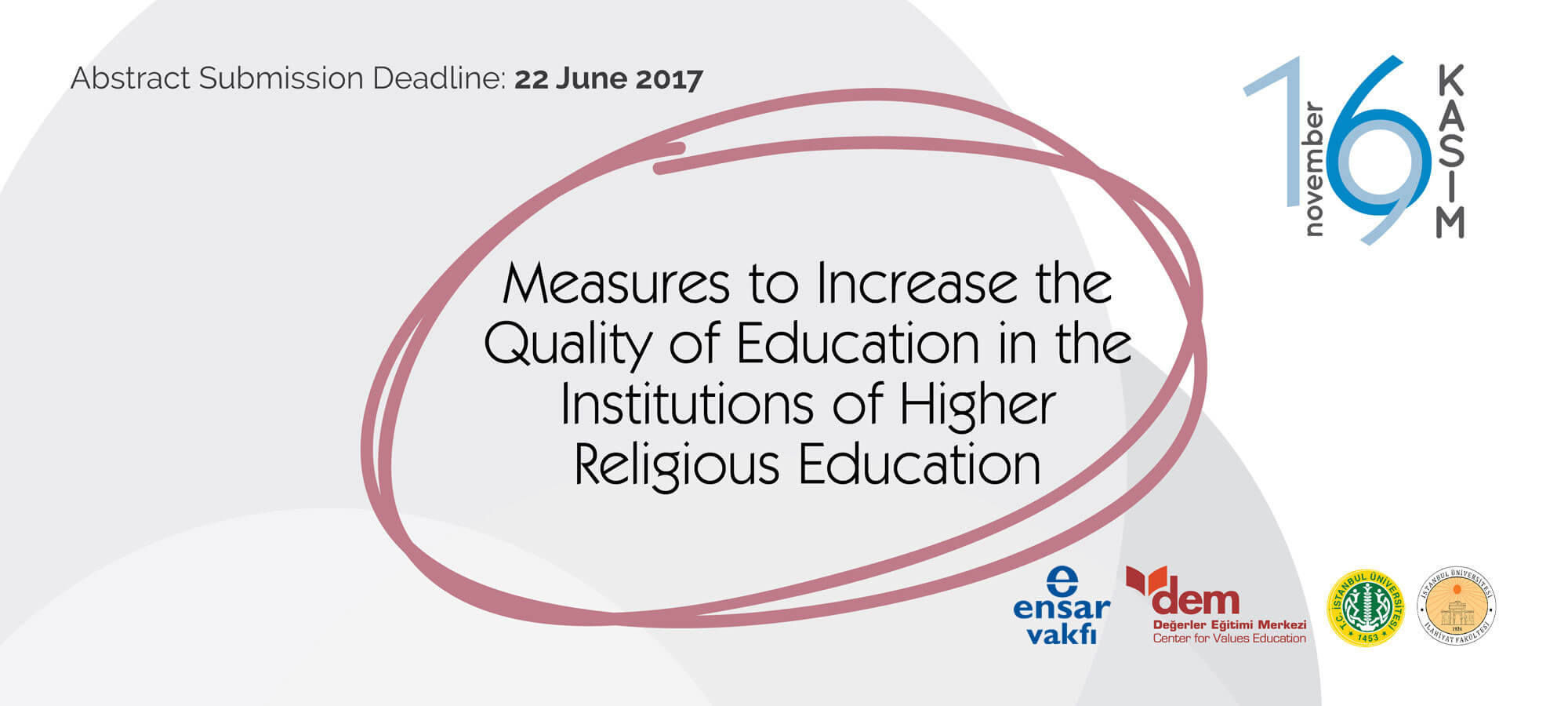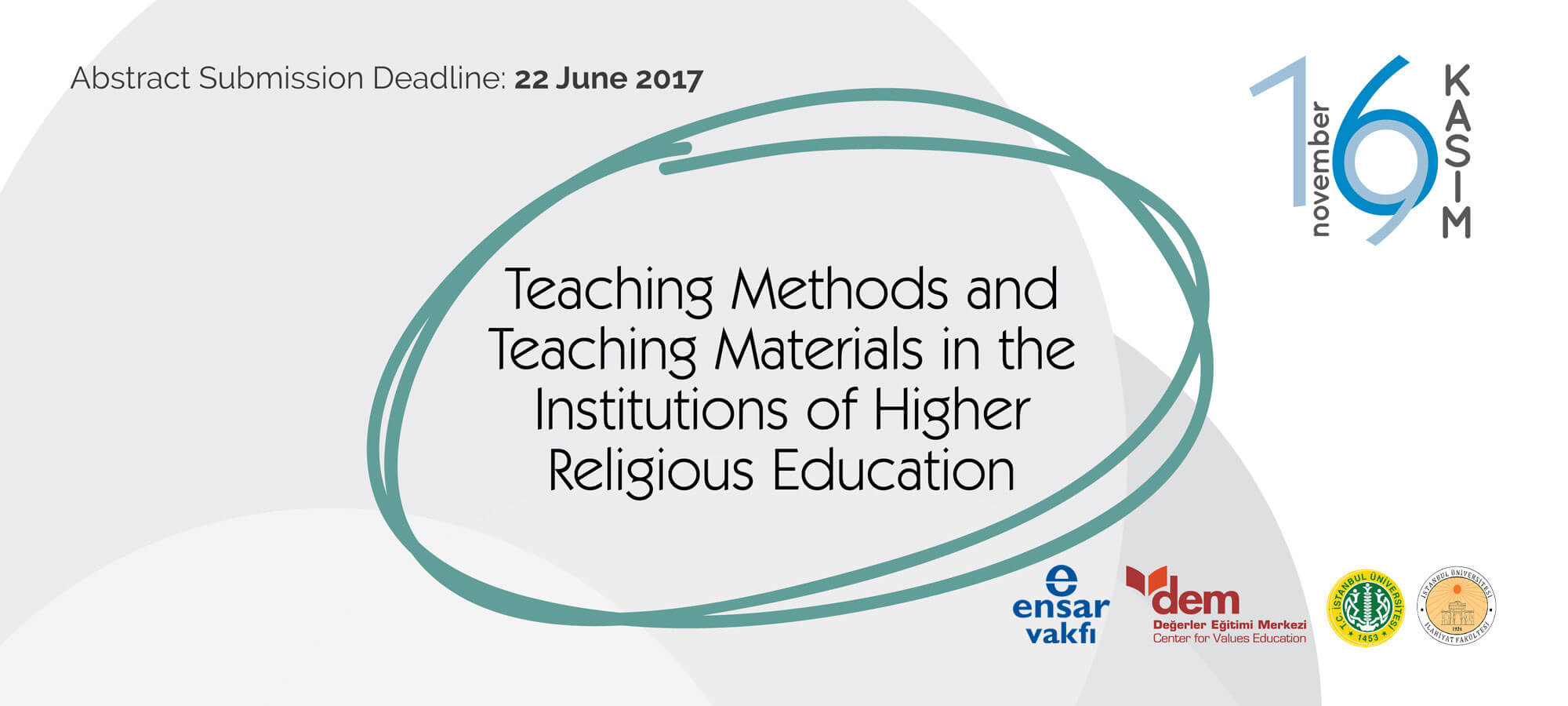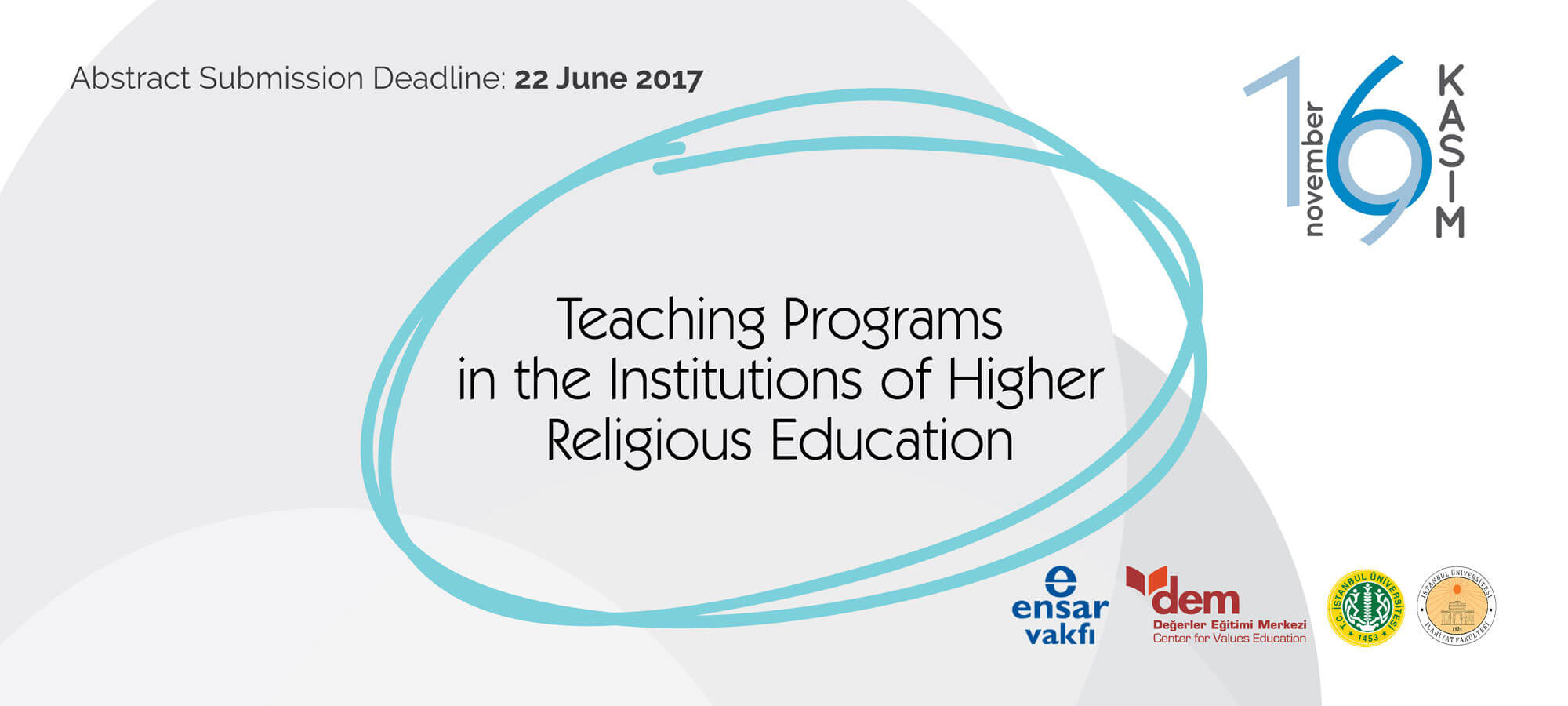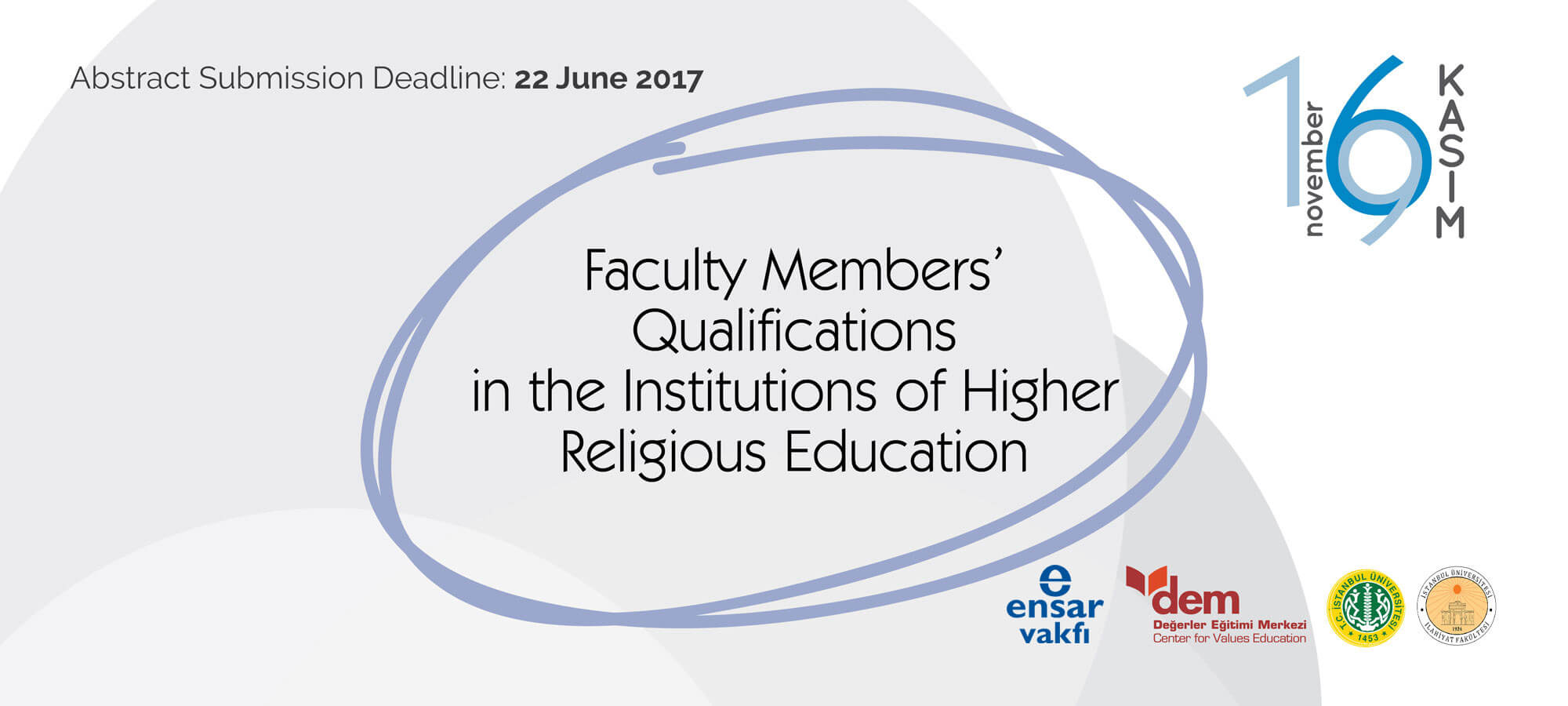DEADLINES
- 22 June 2017 Abstract Submission Deadline
- 04 July 2017 Announcement for Accepted Papers
- 20 October 2017 Full text copy submission
- 16-19 November 2017 Congress Date
- 22 June 2017 : Abstract Submission Deadline
- 04 July 2017 : Announcement for Accepted Papers
- 20 October 2017 : Full text copy submission
- 16-19 November 2017 : Congress Date
Click for program details.
It is a fact that religious education has a very central place in the history of universities. The existence of religious education and teaching within the academic body is affected by the ever-changing dynamics of religious life, including the tension that comes from the separation between religious and secular knowledge. While guiding society, institutions of higher religious education aim at producing and transmitting religious knowledge in the line of change between tradition and modernity, and society’s religious imagination also affects the aims, programs, and functions of these institutions.
Higher religious education in Turkey has been quite active in recent years. Considerable increases in the number of departments, students, and faculties; searches for different programs under different names; debates on education programs; as well as searches for employment-oriented training program development and the establishment of quality standards are counted among these changes. To be able to benefit from such an environment of change, discarding any type of reactiveness or protectionism is of cardinal importance. To think about higher religious studies means a general evaluation of the past, present and future situation of Turkey and the Islamic world in the light of the general course of the world, as well as looking for ideas that go beyond it.
The International Congress on Higher Religious Education is organized in order to create an environment of serious debates among the participants from various countries, to identify and evaluate the issues in the field of higher religious education, to exchange experience, and to review cooperation opportunities.
Paper proposals can respond, but are not restricted, to the following themes:
Higher Religious Education from a Historical Perspective
- Historical development of the institutions of higher religious education
- Comparisons of madrasas and the institutions of higher religious education
Evaluation and Analysis of Current Situation in the Institutions of Higher Religious Education
- Human model in the institutions of higher religious education
- Understanding of religion
- Understanding of knowledge
- Institutions of higher religious education in the context of state-religion relations
- Relations with the Presidency of Religious Affairs
- Relations with the Ministry of Education
- Student profile
- Instructor profile
- Theology students’ opinions on higher religious education
- Instructors’ opinions on higher religious education
Quality Standards and Competences
- Employment areas and problems
- Determinations of quality standards and competences
- Student competencies
- Faculty members’ qualifications
- Teaching programs
- Academic division: Evaluations and suggestions
- Teacher training function of the institutions of higher religious education
- Teaching methods and teaching materials
- Measures to increase the quality of education
- Evaluations and suggestions on physical condition
- Future vision of the institutions of higher religious education
Research & Development in Higher Religious Education
- Academic research and production in the disciplines of theology
- Graduate education
- Current state of the Faculties of Theology in terms of scientific approaches, theories and methods
- Relations of divinity disciplines with each other
- Relations of the disciplines of theology with social sciences and humanities
Scientific Advisory Board
- Prof. Dr. Abdullah Özbek / Necmettin Erbakan University
- Prof. Dr. Adnan Demircan / Istanbul University
- Asst. Prof. Ahmet Alibasic / University of Sarajevo
- Prof. Dr. Ahmet Koç / Marmara University
- Prof. Dr. Ahmet Onay / Mehmet Akif Ersoy University
- Prof. Dr. Ahmet Yaman / Necmettin Erbakan University
- Prof. Dr. Ali Al Qaradaghi / Qatar University
- Assoc. Prof. Ali Ayten / Marmara University
- Prof. Dr. Ali Bardakoğlu / Istanbul 29 Mayıs University
- Assoc. Prof. Ali Büyükaslan / Medipol University
- Prof. Dr. Ali Erbaş / Presidency of Religious Affairs
- Alparslan Durmuş / Ministry of National Education
- Prof. Dr. Asım Yapıcı / Çukurova University
- Assoc. Prof. Bekir S. Gür / Yıldırım Beyazıt University
- rof. Dr. Burhanettin Tatar / Ondokuz Mayıs University
- Prof. Dr. Bülent Uçar / Osnabrück University
- Prof. Dr. Cafer Sadık Yaran / Ondokuz Mayıs University
- Prof. Dr. Cemal Tosun / Ankara University
- Asst. Prof. Gülüşan Göcen / İstanbul University
- Prof. Dr. Gürbüz Deniz / Ankara University
- Prof. Dr. Hacı Mehmet Günay / Sakarya University
- Prof. Dr. Halit Ev / Celal Bayar University
- Prof. Dr. Hasan Kamil Yılmaz / Marmara University
- Dr. Hatem Al Bazian / Zaytuna College
- Prof. Dr. Hayati Hökelekli / Uludağ University
- Prof. Dr. Hayrettin Karaman / Senior Faculty Member
- Prof. Dr. İbrahim Kâfi Dönmez / Istanbul 29 Mayıs University
- Prof. Dr. İhsan Fazlıoğlu / Istanbul Medeniyet University
- Prof. Dr. İlhan Kutluer / Marmara University
- Prof. Dr. İsmail Taşpınar / Marmara University
- Prof. Dr. Kaşif Hamdi Okur / Hitit University
- Dr. Khosrow Bagheri Noaparast / University of Tehran
- Prof. Dr. M. Şevki Aydın / Erciyes University
- Prof. Dr. Mahmut Aydın / Ondokuz Mayıs University
- Prof. Dr. Mehmet Emin Köktaş / Istanbul Sabahattin Zaim University
- Prof. Dr. Mehmet Evkuran / Hitit University
- Dr. Mohammad Jaber Thalji / Yarmouk University
- Prof. Dr. Muhiddin Okumuşlar / Necmettin Erbakan University
- Prof. Dr. Mustafa Çağrıcı / Istanbul 29 Mayıs University
- Prof. Dr. Mustafa Köylü / Kyrgyz Turkish Manas University
- Prof. Dr. Mustafa Öcal / Uludağ University
- Prof. Dr. Mustafa Öztürk / Marmara University
- Nazif Yılmaz / Ministry of National Education
- Dr. Necdet Subaşı / Republic of Turkey Prime Ministry
- Prof. Dr. Nuri Tınaz / Marmara University
- Prof. Dr. Nurullah Altaş / Atatürk University
- Prof. Dr. Oddbjørn Birger Leirvik / Oslo University
- Prof. Dr. Raihani / Islam Negeri Sultan Syarif Kasim Riau University
- Dr. Raşit Bal / Hogeschool InHolland Amsterdam
- Prof. Dr. Raşit Küçük / Centre for Islamic Studies
- Prof. Dr. Recai Doğan / Ankara University
- Prof. Dr. Recep Kaymakcan / Center for Values Education
- Prof. Dr. Recep Şentürk / Ibn Haldun University
- Prof. Dr. Robert Hefner / Boston University
- Prof. Dr. Rosnani Bt. Hashim / International Islamic University, Malaysia
- Prof. Dr. Suat Cebeci / Sakarya University
- Prof. Dr. Süleyman Akyürek / Erciyes University
- Dr. Syed Asad Abbas Rizvi / International Islamic University, Islamabad
- Prof. Dr. Şaban Ali Düzgün / Ankara University
- Prof. Dr. Şakir Gözütok / Yüzüncü Yıl University
- Prof. Dr. Zekeriya Güler / Istanbul University
- Prof. Dr. Zeki Salih Zengin / Yıldırım Beyazıt University
- Dr. Ziyad Aziz Alrawashdeh / Istanbul University
The Head of The Congress
- Prof. Dr. Murteza Bedir, Istanbul University / Turkey
The Head of The Organization Committee
- Yrd. Doç. Dr. Z. Şeyma Altın, Center for Values Education & Istanbul University / Turkey
Local Organising Scientific Committee
- Assoc. Prof. Hasan Meydan / Bülent Ecevit University
- Hulusi Yiğit / Center for Values Education
- Asst. Prof. İbrahim Aşlamacı / Inönü University
- Asst. Prof. Mahmut Zengin / Sakarya University
- Asst. Prof. Mehmet Ali Doğan / Istanbul Technical University
- Asst. Prof. Ömer Faruk Ocakoğlu / Kırklareli University
- Yrd. Doç. Dr. Zeynep Kaya / Dumlupınar University
Congress Secretariat
- Fatma Reyhan Balcı, Centre for Values Education, Turkey
Click to view and download abstracts book.
The full-text papers will be published in an edited book according to the result of the referees evaluations after the Congress.
Paper Guidelines
Abstract papers should be registered only from website registration section.
The title of the paper should include these information in order:
The title of the paper
Title should be centralized, 12 font size of Times News Roman, bold as only first letters are capital.
Information below should be stated under the title of paper:
a. The name of the author (s) -with the profession-
Author names should be stated under the title of paper, 12 font size of Times News Roman, bold as only first letters are capital.
b. The institution of the author (s) –with the faculty and department –
The institution of the authors should be written under the title of paper inside a bracket, 12 font size Times News Roman, bold, centralized as only first letters are capital.
c. The contact information (e-mail address)
Email address should be written beside the institution of the author (s).
The abstract paper: In between 300 and 400 words.
The full paper text: In between 4.000 and 7.000 words.
Abstract and full papers should be written with 12 font size of Times News Roman, centralized, 1,5 space and 1 or 2,5 margins. 1,5 cm paragraph indentation and space between paragraph should be adjusted 12 nk.
References: Footnotes should be used only for the expressions added to the chapter, not for the references. Citations should be displayed in the chapter. (You may find the sample below.)
Bibliography: There must be a bibliography at the end of the text. (Please check the bibliography rules below.)
Examples
1. Citations Should Be Displayed In The Text:
Example: Researchers have pointed out that the lack of trained staff is a common barrier to providing adequate health education (Fisher, 1999: 25) and services (Weist & Christodulu, 2000: 51).
(Note that you do not need to provide a page number(s) except for direct quotations.)
2. Bibliography
(Please take attention to where capital and small letters, dot and comma, italic phrases are used.)
You can find more information about these rules (APA) at this link: (American_Psychological_Association_(APA)_Documentation_M.pdf)
Book:
Kaymakcan, R. & Leirvik, O. (2007). Teaching for tolerance in Muslim majority societies. Istanbul: Dem Publishing.
Journal article:
Dijkman, H.C., & Camp, D.P. (1987). Practical theodicee: A typology of six models of theodicy. Journal of Empirical Theology, 1(3), 67-86.
Chapter in an edited book:
Bellah, R. (1970). Civil religion in America. In R. Bellah (Ed.), Beyond Belief: Essays on Religion in Post-Traditional World. New York: Harper&Row, s.513-530.
Electronic References:
Nurullah Altaş, ‘’ Türkiye’de Dinî Yükseköğretim Alanında Uzaktan Eğitimle İlgili Algı Sorunları ve İLİTAM Uygulamaları,’’ Güncelleme Tarihi 20 Haziran 2016, Erişim 08 Nisan 2017 http://ded.dem.org.tr/gorsel/pdf/ded-31-makale-1.pdf
Accommodation and boarding expenses will be provided by the conference organising committee for those who present papers.
3 Elmaruf Street
Süleymaniye - Fatih / Istanbul
TURKEY
Telephone: +90 (212) 512 19 88-89-90
Fax: +90 (212) 512 19 91
E-mail: [email protected]
REGISTRATION
AUDIENCE FORM
Note: Sessions will be conducted in English and Turkish languages.
16-19 November 2017
İstanbul Grand Cevahir Hotel Convention Center
Address: Darülaceze Cad. No:9 Şişli / İstanbul

